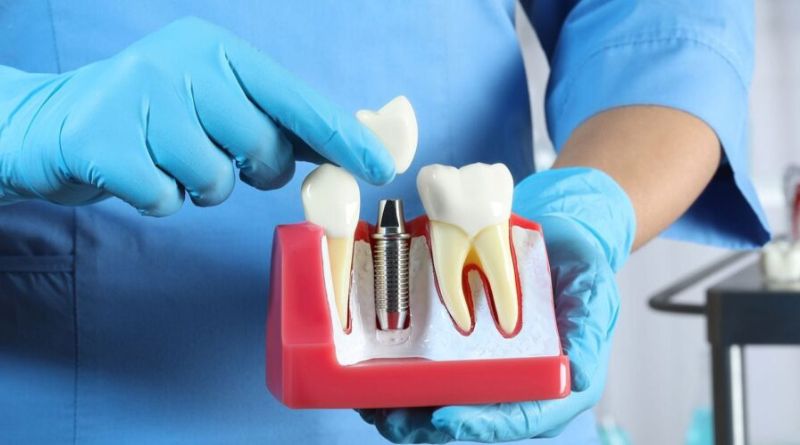When it comes to restoring damaged or weakened teeth, dental crowns have become a trusted and widely used solution. Whether due to tooth decay, injury, or after a root canal procedure, dental crowns offer both protection and aesthetic enhancement. But for many patients, one of the first questions that arises is about the cost of dental crown procedures. While the price may seem high at first glance, understanding the functional benefits and long-term value reveals why a dental crown is more than just an expense—it’s an investment in your oral health.
What Is a Dental Crown?
A dental crown is a custom-made cap that covers the entire visible part of a tooth. It’s designed to restore the tooth’s shape, size, strength, and appearance. Crowns can be made from a variety of materials, including porcelain, ceramic, metal alloys, or a combination of materials, each offering different benefits in terms of durability and aesthetics.
Crowns are typically recommended when a tooth is too damaged to support a filling but not damaged enough to require extraction. They are also used to support dental bridges, cover dental implants, or improve the appearance of discolored or misshapen teeth.
The Cost of Dental Crown: What Determines the Price?
The cost of dental crown treatments can vary significantly based on several factors, including:
- Material Used: Porcelain and ceramic crowns, which provide a natural tooth appearance, tend to be more expensive than metal crowns. Zirconia crowns, known for their strength and aesthetics, may also come at a premium.
- Location of the Dental Practice: Clinics in metropolitan areas or cities with a high cost of living often charge more for dental services than those in rural areas.
- Dentist’s Experience and Technology Used: Advanced technology such as CEREC (Chairside Economical Restoration of Esthetic Ceramics) and 3D imaging can enhance accuracy and reduce wait time, but may add to the cost.
- Tooth Position: Crowns on molars may require stronger (and costlier) materials than those placed on front teeth, which prioritize appearance.
On average, the cost of dental crown procedures can range from \$800 to \$2,500 per tooth in many regions. If additional procedures are needed—such as a root canal, core buildup, or gum treatments—the total cost can increase accordingly.
Why the Investment Makes Sense
When evaluating the cost of dental crowns, it’s crucial to shift focus from short-term expenses to long-term value. A well-crafted dental crown can last between 10 to 15 years—or even longer with proper care. Considering its lifespan, the per-year cost becomes significantly more reasonable.
But more importantly, the functional benefits of dental crowns justify their price tag.
Functional Benefits of Dental Crowns
1. Protection and Strength
Dental crowns shield weakened or cracked teeth from further damage. This protection prevents tooth loss, which would otherwise require more complex and expensive procedures such as implants or bridges.
2. Restored Chewing and Speaking Abilities
Damaged teeth can impair your ability to chew properly or speak clearly. Crowns restore normal function, allowing you to eat a balanced diet and communicate without difficulty.
3. Maintaining Jaw Alignment and Bite
Missing or severely worn teeth can affect your bite, leading to jaw pain or temporomandibular joint (TMJ) issues. Crowns help maintain proper alignment and reduce the risk of such complications.
4. Aesthetic Improvement
While functionality is the top priority, crowns also significantly improve the appearance of your smile. Modern materials like ceramic or zirconia mimic the translucency and color of natural teeth, boosting your confidence.
5. Preventing Further Dental Costs
By stabilizing a vulnerable tooth, crowns can help you avoid more invasive procedures in the future. This includes root canals, extractions, or even implants—each of which can be more expensive than a crown.
Insurance and Financing Options
Dental insurance often covers a portion of the cost of dental crown treatment, especially if it’s deemed medically necessary. However, coverage can vary, with some plans covering 50% of the procedure and others offering less.
For those without insurance, many dental clinics offer financing options, such as payment plans or partnerships with third-party financing companies. Some even provide in-house dental membership plans to help reduce out-of-pocket costs.
Choosing the Right Provider
While cost is a valid concern, it’s important not to compromise on quality. A poorly fitted crown can lead to ongoing discomfort, bite issues, or even further damage. When choosing a provider, consider:
- Experience and credentials of the dentist
- Quality of materials used
- Available technology and tools
- Patient reviews and before-and-after photos
Investing in a well-crafted crown from a reputable provider ensures you receive maximum functional benefits and long-lasting results.
The cost of dental crown procedures may seem steep initially, but when weighed against the long-term functional benefits and protection they offer, crowns prove to be a wise investment in your oral and overall health. By restoring strength, improving aesthetics, and preventing future dental problems, dental crowns provide more than a cosmetic fix—they offer a durable solution that enhances your quality of life. Always consult with your dentist to determine the best crown material and treatment plan for your specific needs, and remember: your smile is worth the investment.






